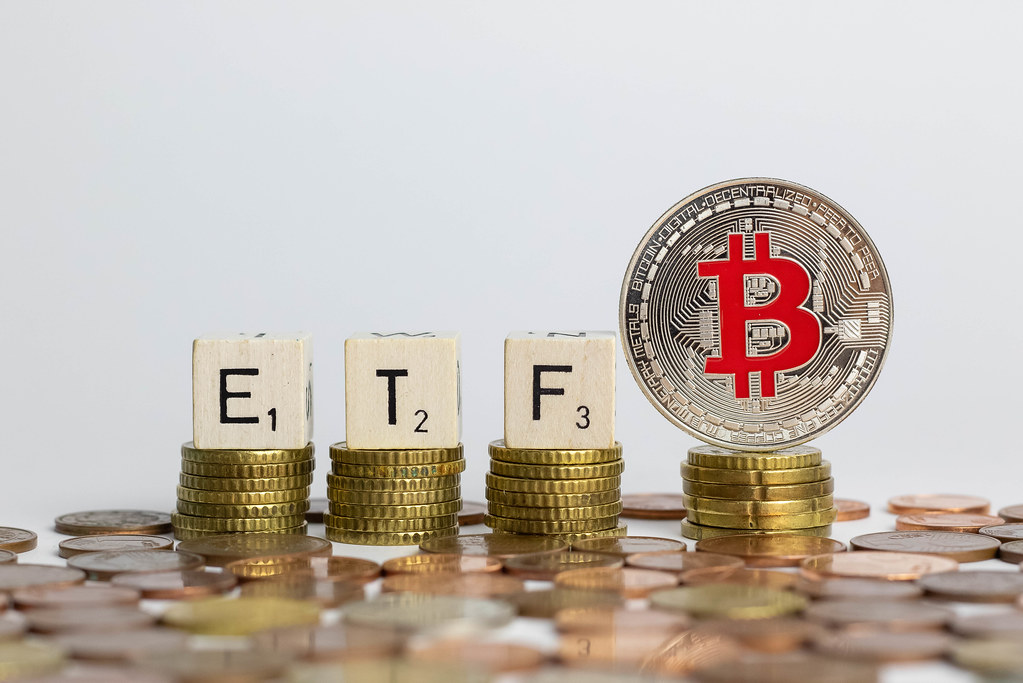Bitcoin spot ETF approved by the SEC
More than ten years after the first proposal to create a Bitcoin spot, brothers Cameron and Tyler Winklevoss submitted ETF. The Bitcoin spot ETF has just been officially approved by the U.S. Securities and Exchange Commission (SEC).
The SEC I confirmed, this time also with “adventures,” that the first Bitcoin spot ETFs have been accepted. Just after announcing the acceptance of all funds on the SEC website, the document… disappeared, and the website displayed a 404 error.
However, Gary Gensler’s entry leaves no doubt. He also confirmed that the acceptance of the ETF is a result of the defeat in court in the Grayscale case.
Bitcoin spot ETF is an investment fund that allows you to purchase shares representing the underlying asset, BTC. Such a fund is listed on the stock exchange, and investors can gain exposure to bitcoin price movements without “physically” purchasing and managing the cryptocurrency.
Moreover, unlike futures funds, the Bitcoin spot fund will have BTC that it must purchase and not operate on cash, like cryptocurrency futures funds that have been working on the market for years. In line with demand for the BTC spot ETF, the fund issues shares corresponding
to a set number of bitcoins. These shares should reflect the market price and the ETF balances resources by buying or selling tokens.
In exchange for its services, the fund charges fees.
Ost Funds chose Coinbase as a custodian, which will physically store BTC.
However, it is also worth mentioning once again the real “OGs” of Bitcoin, the Winklevoss brothers, whose Gemini exchange will take care of the BTC trust of the VanEck fund, which manages assets worth USD 76.4 billion.
As for the fund management companies themselves, the largest are Fidelity, which has assets worth USD 11.5 trillion, and BlackRock – over USD 9 trillion (in the iShares table).

What does spot ETF mean?
Spot ETF allows interested parties to easily purchase exposure to the BTC price (in the form of shares) without managing the purchased cryptocurrency themselves.
Moreover, it can be done through familiar brokerage accounts in a way that is regulated in the US (ETF) and may also be taxed more favorably than holding cryptocurrencies directly.
There is also a psychological aspect here. The acceptance of ETFs, although somewhat forced on the SEC by the court ruling (in the Grayscale case), means the official recognition of Bitcoin as an instrument to be reckoned with.
Although risk warnings will not disappear and will probably intensify, accepting ETFs opens Bitcoin to a new market and capital.
Reggie Brown, head of ETF trading and sales at GTS, told Bloomberg that all approved ETFs could attract $10-20 billion annually.
The Standard Chartered Investment Bank announced that it expects investment flows of USD 50-100 billion in 2024 alone.
Expert opinions (as always) vary. Some say spot ETFs will attract $3 billion in capital on day one. Others say 55 billion over five years.
While these numbers may seem high, remember that one “unofficial” ETF spot has been operating for years. Grayscale has almost USD 29 billion in BTC, which it purchased to hedge its GBTC shares (although the share price was significantly different from the bitcoin price due to the lack of a spot ETF).
From today, GBTC will also be an ETF.
What does an ETF NOT offer?
It doesn’t give… bitcoin. Although it is an exposure to the price and the pledge in the form of BTC exists, purchasing shares of the fund does not provide the same thing as buying BTC and owning it. Not your keys and stuff…
This is an easier option for those in the US who only want to profit from the price increase, and many of them exist. However, for all the rest who would like to have BTC and what it offers, i.e., decentralization, no possibility of stealing or blocking funds on the chain (full right of ownership), the right to send wherever and whenever we want, and with the development of adoption, also more and more payment options for services and goods. The holders of ETF shares sacrifice all this and must pay a commission just for holding the shares.
For hardened “crypto people” who see the fundamentals of cryptocurrencies and appreciate some of them, an ETF is not a considered purchase option, but there are few of us.
This does not change the fact that accepting a spot ETF on BTC is a big event from any point of view.












